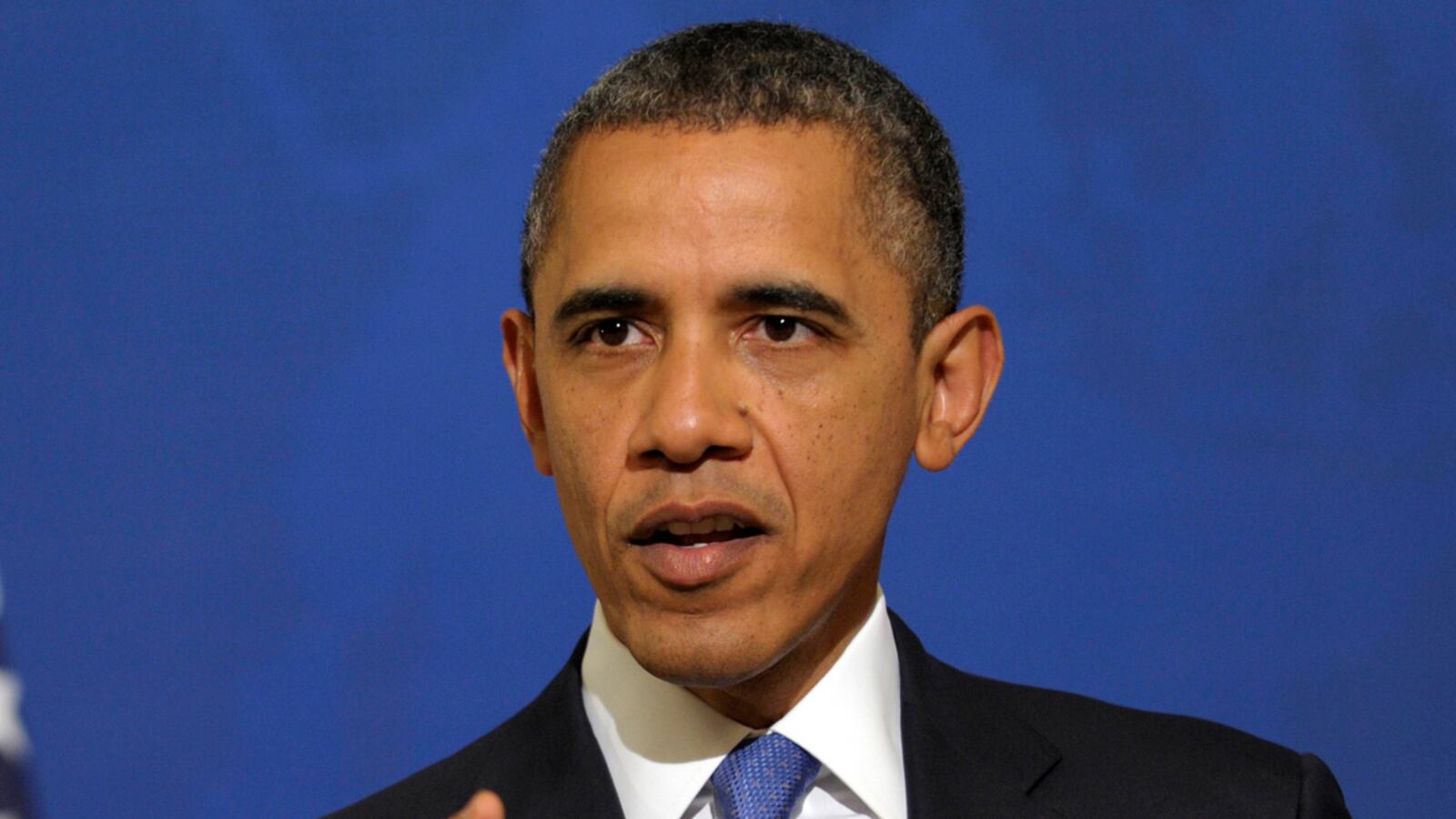With so much attention focused on the opening arguments of the Supreme Court case that will determine the future of “Obamacare”—as we’ve all agreed to call it—the smart folks in the media and elsewhere appear to have settled on the view that the entire epic struggle was a fool’s errand from the start. The Obama administration allowed itself to be paralyzed by the penny-ante antics of fair-weather friends in its own party and the scaredy-cat remnants of what used to be called “moderate Republicans” and ended up deploying just about every last ounce of its political capital to pass a bill.
And for what? A majority of Americans say they oppose it, and no wonder. Obama was forced to make concession after concession to the insurance industry, the pharmaceutical industry, the doctors’ lobby, and various small-business lobbies. Most of the provisions designed to fix what ails our health system don’t kick in until 2014, which, one wishes administration officials had noticed, is two years after he has to win an election. It was sheer arrogance on Obama’s part to insist on betting his presidency on something that would turn out to be so difficult to defend and yet presented so fat a target for Republicans opponents to attack.
Well, yes and no. Sure it’s an uphill battle, beginning with the American public’s notorious skepticism about all government programs these days and doubly so regarding those that involve significant spending. And it is perhaps harder for this administration to break through the din of ideologically inspired misinformation spread not only by Republicans but also by their foot soldiers on Fox News and elsewhere in the conservative-media sphere.
But Democrats do not enter politics for the sake of power alone. They want to use that power to do the stuff for people that politics are, at least theoretically, able to do. The last two Democratic presidents chose health care as the signatory goals of their first terms, and where Clinton failed, Obama succeeded. And as of Sunday morning, they looked more than ready to defend that success, mixed as it might have been. “I’m convinced at the end of the decade, the Republicans are going to regret turning this [into] ‘Obamacare,’” David Plouffe told Fox News Sunday. While much of the law doesn’t take effect until 2014, he added, “important parts are getting implemented right now. Two and half million people between the ages of 21 and 26 have health care only because of the health-care law. Over 5 million seniors are getting over $600 in prescription-drug relief.”
Demonstrating that they had made a belated but irreversible decision to make the Affordable Care Act a centerpiece of the 2012 election campaign, Obama political guru David Axelrod emailed supporters over the weekend, on the second anniversary of the bill’s passage, arguing: “Obamacare means never having to worry about getting sick and running up against a lifetime cap on insurance coverage. It gives parents the comfort of knowing their kids can stay on their insurance until they’re 26, and that a ‘pre-existing condition’ like an ear infection will never compromise their child’s coverage.”

Depending on the Supreme Court, of course, it might work. Politically, Obama’s amazing streak of self-destructing opponents who have lain beneath his feet during his unlikely political career appears to be holding. Among Mitt Romney’s myriad weaknesses going into the general election is the fact that, as Chuck Schumer observed, the health-care issue “will be virtually taken off the table. Let’s remember: Not only did he propose it in Massachusetts, but in 2009, when the health-care debate was raging, he wrote an op-ed in USA Today and called on the president to adopt it and called on the Congress to adopt it.”
And if you look roll back to the hysterical predictions being made at the time of passage—remember John Boehner promising that the bill would “ruin our country” and Rick Santorum similarly predicting that it would “destroy the country”—they are not looking so sensible today.
Indeed, even with all the negative attention focused on the law by its opponents, roughly 70 percent of Americans polled say the new law has not affected them personally. They are unaware—in part due to the Obama administration’s failure to communicate more effectively—that, for example, Medicare patients are, thanks to the law, entitled to free preventive care, in addition to more comprehensive coverage of prescription drugs or the fact that chain restaurants now must post calorie information on their menus.
(And if you love the muffins at Starbucks, boy, does that turn out to be alarming news.)
While many liberals felt profoundly frustrated by just how solicitous Obama felt he needed to be of deficit hawks’ arguments about putting off implementation of the most important parts of the bill until 2014 for budgetary reasons, it turns out that according to the people who wrote the bill, it would have been simply impossible to make it work any sooner. (Many people inside the administration find even the current schedule impressively optimistic.)
So was it a political mistake for Obama to put so many eggs in the health-care-reform basket? Well, a negative decision from the Supreme Court will certainly make it appear so. But the president can hardly be faulted for using his presidency do to something big, something he was elected to do, and something that, while politically risky, had the power to address a fundamental problem for the American economy that has bedeviled every Democratic president since Harry Truman. Certainly there are worse sins than doing everything possible to make your presidency matter.





